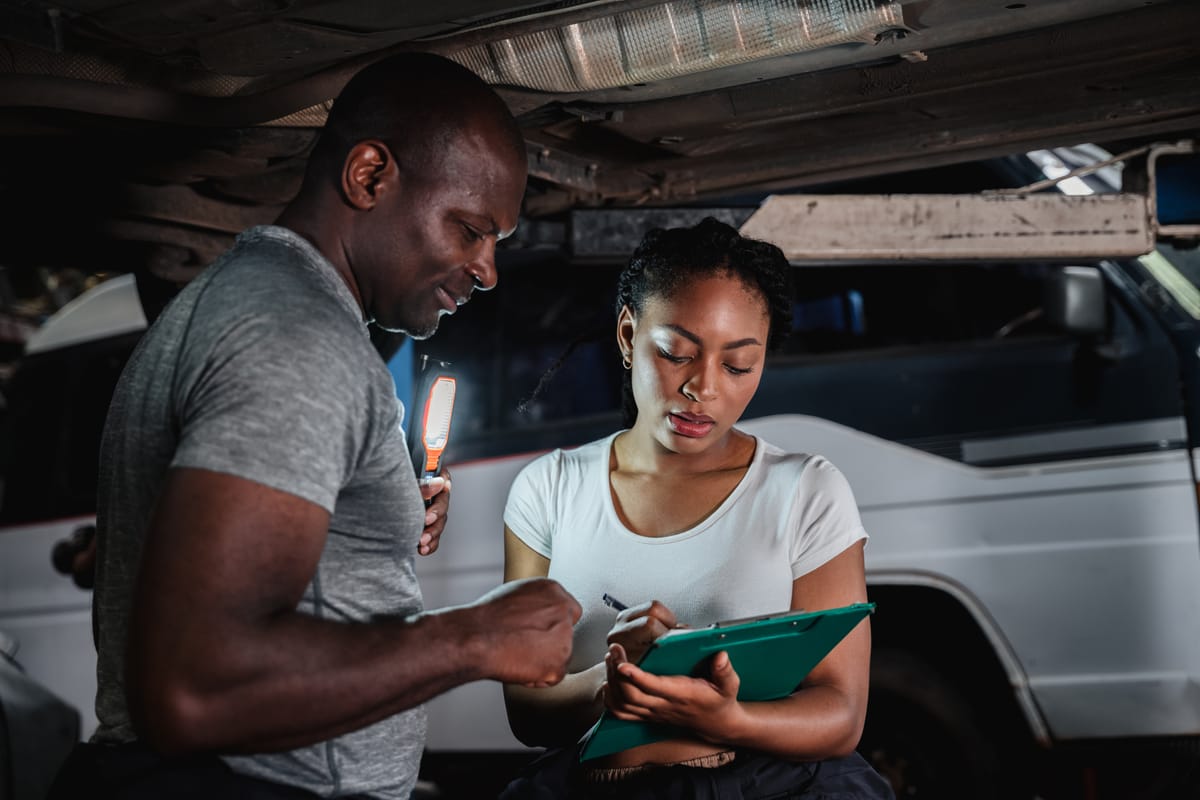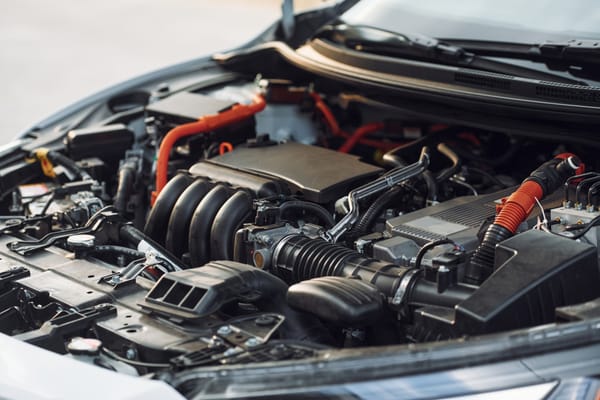Selling Your Car? Here Are 7 Documents You Will Need in Kenya

So, umeamua kuachana na gari yako. Maybe you’re chasing that dream SUV, maybe you’re going electric, or maybe you just need to free up some pesa. Whatever the reason, selling your car in Kenya doesn’t have to be a long story.
With the right papers, you can close the deal faster than a boda weaving through traffic. At Peach Cars, we’ve seen it all, and we’re here to make sure you don’t get caught off guard.
Don’t Hit the Road Without These Documents
When you’re selling a car, there’s some paperwork you just can’t skip. You can’t just hand over your car keys and say “Twende!” The government wants receipts, literally. And by receipts, I mean documents.
Here’s your must-have list before you even start posting “Car for sale, inbox for details” on Facebook:
1. Original Logbook, The Big Boss of Documents
Think of the logbook as your car’s birth certificate. Without the original one, you’re basically trying to sell vibes. Issued by the National Transport and Safety Authority (NTSA), it’s proof you’re the legit owner.
Notice the emphasis on ORIGINAL. Photocopies are great for your personal files, but for the actual sale, only the real deal will do.
Why it matters:
- No logbook, no sale. Simple.
- Protects you and the buyer from shady deals.
Pro tips:
- If it’s still with the bank, clear your loan and have them release it.
- Keep it safe, hii si kitu ya kuweka kwa glovebox loosely.
What if it's lost?
Haina noma. It happens. If your logbook is lost and you can't find it, you'll need to apply for a duplicate. This involves reporting it as lost at a police station to get a police abstract, and then applying for a duplicate logbook on the NTSA TIMS portal. It takes a bit of time, so it's best to start this process before you find a buyer.
2. Valid Insurance Certificate, Show You’re Still Road-Legal
Even if you’re selling, your car must be insured until handover. This is what keeps both you and the buyer safe.
Why it matters:
- Shows the car is roadworthy and compliant.
- Tells the buyer the car hasn’t been gathering dust.
Pro tips:
- Renew if it’s about to expire, buyers love a car that’s ready to roll.
- Cancel after the sale and get a refund for unused months.
3. The Proof That You Are You – National ID or Passport For Both Parties
This one’s a no-brainer. It's your official government-issued identification. For the sale, you’ll need clear copies of both the front and back. Both you and the buyer must have this document.
Why it matters:
- Required for NTSA transfer.
- Confirms identities.
Pro tips:
- Photocopy both IDs and attach them to the sale agreement.
- Ensure names match exactly with the Kenya Revenue Authority (KRA) PIN and logbook.
What if the car is company-owned?
If the car is registered under a company name, you'll need the company's Certificate of Incorporation instead of a personal ID. You'll also need the KRA PIN certificate for the company. The transfer will need to be initiated by one of the company directors listed on the official registration documents.
4. KRA PIN Certificate, For Tax Compliance
Your KRA PIN is your unique tax ID. It proves you're a registered taxpayer in Kenya. For the car selling process, both you and the buyer must have valid KRA PINs.
Why it matters:
- NTSA won’t process the transfer without it.
- Needed for tax records.
Pro tips:
- Lost it? Reprint from the KRA iTax portal.
- Make sure details match your ID.
Where do you get it?
If you've misplaced the printout, just log into your KRA iTax portal online. You can easily reprint your certificate from there. If you’ve forgotten your password (haven’t we all?), you can reset it using your registered email address.
5. Roadworthiness Certificate, Especially for Commercial Rides
For matatus, pickups, and trucks, NTSA needs to confirm your ride is fit for the road.
Why it matters:
- Mandatory for commercial vehicles.
- Gives buyers confidence they won’t be hit with surprise repairs.
Pro tips:
- Do the inspection early, usingoje last minute.
- If it fails, fix the issues and retest.
6. Service History Records, Your Car’s CV
Not a must-have legally, but trust me, it’s a game-changer.
Why it matters:
- Shows you’ve taken care of the car.
- Helps you justify your asking price.
Pro tips:
- Keep receipts from garages, oil changes, tyre swaps, and major repairs.
- If you’ve been using an authorised dealer, ask for a full printout.
7. Sales Agreement, The Official Handshake
This is the written contract between you and the buyer.
Why it matters:
- Protects both sides in case of drama.
- Clearly states the terms of the sale.
What it should include:
- Full details of the car: Make, model, registration number, chassis number.
- The agreed price: The exact amount the buyer is paying.
- The parties involved: Your full names, ID numbers, and the buyer's full names and ID numbers.
- The date of the sale.
- A clause: A simple statement like "The vehicle is sold 'as is, where is'". This protects you from the buyer coming back weeks later, complaining about a squeaky window.
Both you and the buyer must sign and date it. It’s a good idea to have a witness for each party sign as well, though it’s not strictly mandatory. It turns a verbal agreement into a legally recognised one.
The eCitizen Transfer Process in a Nutshell
Okay, so you have all your documents neatly arranged in a file. What's next? The digital handshake on eCitizen.
We won’t go into the nitty-gritty here because we have a super-detailed, step-by-step guide on the Peach Cars blog that walks you through every single click. You can check it out here.
But here’s the short version:
- Seller Initiates: You, the seller, log into your eCitizen account, go to the NTSA section, and start the transfer process. You'll input the car's details and the buyer's details (their KRA PIN and name).
- Buyer Accepts: The buyer gets a notification. They log into their eCitizen account, accept the transfer, and upload the required documents.
- Payment: The system calculates the transfer fees, which the buyer pays online.
- Verification: NTSA verifies everything. Chap chap!
- New Logbook: Once approved, the buyer can download and print the new logbook with their name on it.
It sounds simple, and it can be. But let’s be real, sometimes the online portal can have a mind of its own.
Feeling Overwhelmed? This is Where Peach Cars Comes In.
Reading all this might still feel like a lot. Gathering documents, verifying details, dealing with online portals... it’s a hassle. And that's before you even get to the fun part of finding a serious buyer and negotiating a fair price.
This is exactly why we exist.
When you sell your car with Peach Cars, this entire checklist becomes our problem, not yours.
- We handle the paperwork: We'll tell you what we need, and we’ll handle the entire transfer process on your behalf. No eCitizen headaches for you.
- We find the buyer: Forget dealing with endless phone calls and no-shows. We have a network of serious, vetted buyers ready to pay a fair price for your car.
- We guarantee security: We manage the entire payment process, ensuring it's safe and transparent. Your money will be held securely in an escrow account until all parties are satisfied.
Selling your car should be a moment of joy and progress, not a stressful chore. You worry about picking the colour of your next ride; let us handle the paperwork.
Ready to sell your ride without the drama? Call us today at +254 709 726 900 and let’s talk car selling!




